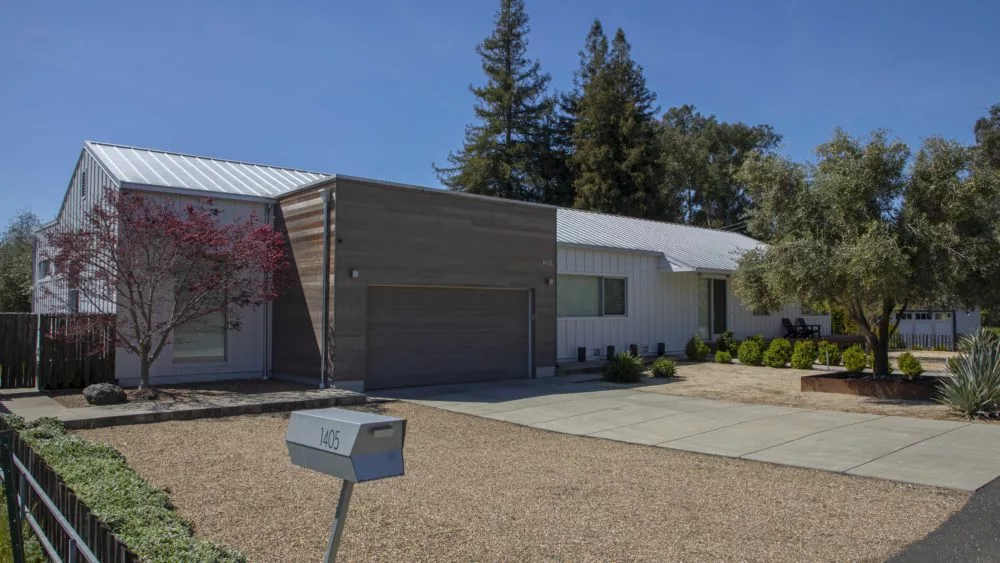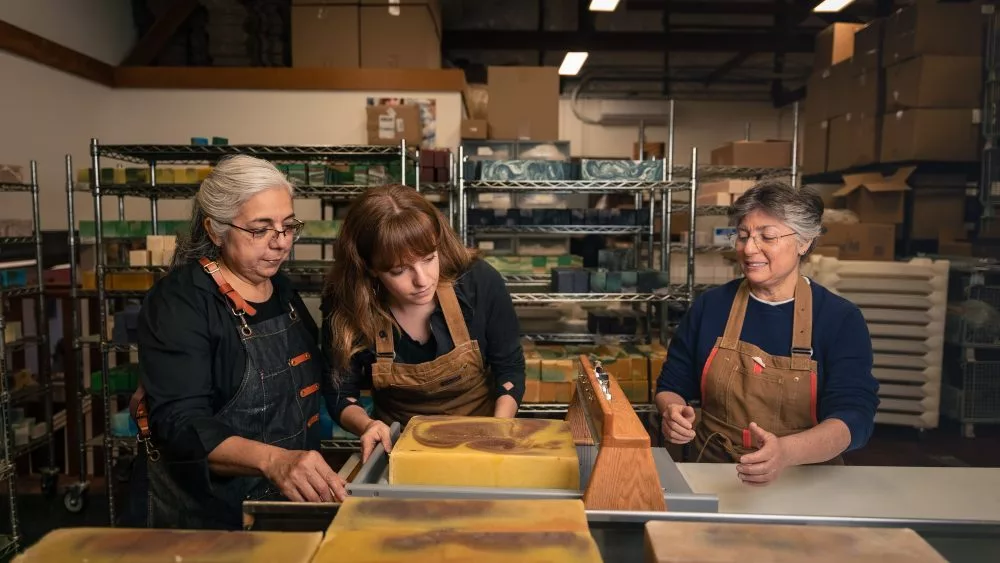Whether you call it fractional homeownership, co-ownership or a straight-ahead timeshare, one thing’s for certain: timeshares are not exactly popular in the North Bay.
Case in point: This February, when fractional homeownership company Pacaso agreed in a legal settlement not to increase the number of homes it manages in St. Helena, “There was general rejoicing,” says Pat Smith of StopPacasoNow.com, an organization with more than 700 members.
When Pacaso began managing a house in Sonoma Valley in 2021, “Stop Pacaso” signs sprung up overnight, neighbors protested and elected officials were deluged with complaints.
San Francisco-based Pacaso was launched in 2020 by real estate tech titans who, many believe, sought to disrupt the timeshare sector. Whether or not Pacaso actually qualifies as a timeshare is an ongoing debate, but nevertheless the recent settlement has drawn attention to the timeshare industry.
What is a timeshare?
According to Merriam-Webster, a timeshare is “an agreement or arrangement in which parties share the ownership of or right to use property (as a resort condominium) and that provides for occupation by each party especially for periods of less than a year.”
Timeshares began in the United Kingdom in the 1960s. The U.S. timeshare industry can also be traced back to the 1960s when one of the first hotel-condominium timeshares was created in Maui.
California has the second highest percentage of the timeshare market, 8%, but that’s dwarfed by the No. 1 state, Florida, which has 24% of the market, according to the Timeshare Associates blog.
WorldMark Windsor, a resort located in a touristy area of Russian River Valley managed by a company that has resorts worldwide, is an example of the more common kind of timeshare.
North Bay residents have participated in timeshares presumably for decades without the industry making headlines here. However, that doesn’t mean that everyone had a good experience.
When Joe Flower purchased an interest in a conventional timeshare with a New Orleans-based company, his experience was anything but upbeat.
“Worst investment I ever made,” says Flower, who was living in Marin County at the time. “My now-ex-wife and I got talked into a timeshare in the Old Quarter in New Orleans.” The couple paid five figures for one week in the off-season in January.
“One main attraction was the idea that we could swap our week for places all over the world. But the off-season week was not very valuable, so we could only swap for less-valuable places and times elsewhere. And none of the resorts and such on offer were to my taste at all, just massive resorts, high rises, at crowded beaches. We used our week once, maybe twice,” Flower said via email.
Flower’s complaints are not unusual for people who have purchased timeshares, regardless of where they live. The Federal Trade Commission warns people to approach buying a timeshare with caution—especially when it comes to selling the timeshare. “Getting out of a timeshare might be tough,” according to the FTC website.
This proved to be true for Flower.

“When that marriage ended, I ended up saddled with trying to sell [the timeshare] and split the proceeds. No takers, market flooded with similar poor investments, difficult to even determine a price. So I just quit—claimed it to my ex. I don’t know what she managed to do with it,” Flower said.
Flower’s experiences are not atypical, according to the FTC: “The truth is, the timeshare market is overcrowded, and it might be hard, if not impossible, to sell a timeshare.” The FTC page devoted to the subject is titled, “Timeshares, vacation clubs and related scams.”
Forever timeshares
An Internet search reveals an entire cottage industry of companies and attorneys promising to “get you out of your timeshare” and charging thousands for the service. But to add insult to injury, the very companies that purport to help beleaguered timeshare owners can be shifty themselves, according to the FTC.
“You’ll see or hear lots of ads from companies claiming to be experts at selling timeshares—they’re online, on the radio and on social media. But sometimes these companies exaggerate or flat-out lie about what they offer you. They take your money and then do little to nothing to help you,” according to the FTC website.
Tim Elsmore of Novato had a different experience with his timeshare, which he purchased from Marriott in 2006. Elsmore actually has two timeshares in two locations, Hawaii and South Lake Tahoe.
“We use the Hawaii one almost every year,” Elsmore says. When his children were younger, he and his wife would visit Hawaii for a week every year in June because it jibed with the kids’ schedules. There were two or three other families with children the same age who vacationed there at the same time, and the children got to be friends over the years, Elsmore says.
Hawaii has no off-season, but the seasons aren’t as important to him, Elsmore says, because “they have a really helpful system that allows you to put the week into a points bag” that can be traded for vacations at different times and places
“I would avoid the no-name timeshare companies. Those are the ones that people seem to have trouble with,” Elsmore says.

Pacaso meets the neighborhood
While the FTC is focused on the dangers to owners of conventional timeshares, the controversies over Pacaso focus on the impacts to neighbors of the single-family dwellings managed by Pacaso.
One of Pacaso’s first North Bay residences was located on Old Winery Court near Sonoma, in a cul-de-sac right across the street from the home of Pat Smith. The company purchased the home in 2021.
“We were blindsided,” Smith says, referring to herself and her neighbors. No one from Pacaso contacted her or her fellow residents to explain what was happening, she says.
Smith and her neighbors feared such things as loud parties, which people in neighborhoods with temporary housing such as Airbnb have experienced. They also feared the hollowing-out of their neighborhood and loss of community.
Citing the devastating fires that have affected the North Bay, Smith says, “They [the fractional owners] are not part of our preparedness community.”
The neighbors—and their counterparts in Napa County—took action, forming StopPacasoNow, hanging banners, sharing their concerns with their elected officials.
Local governments responded. The City of Sonoma in January 2022 unanimously approved an urgency ordinance prohibiting timeshares and fractional uses in all parts of the city.
The City of St. Helena demanded that Pacaso cease its timeshare operations within city limits. However, Pacaso sued the city in April 2021, saying it wasn’t a timeshare.
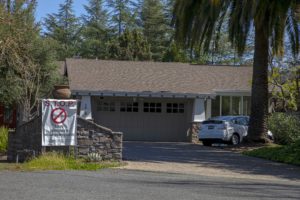
“Even though they had been hit by a lawsuit, the city did a brave thing,” Smith says. The city amended its code to specifically mention fractional homeownership even as the lawsuit continued.
The lawsuit was settled in February 2024. The compromise: Pacaso can continue to manage its four existing homes in the city, but agreed not to add any more.
This means that timeshares are not completely banned in St. Helena.
Like St. Helena, some other North Bay governmental entities didn’t ban timeshares altogether, but placed various restrictions on them, such as the location.
The City of Napa has an ordinance that prohibits timeshares in and around downtown and in residential districts—and requires a use permit for timeshares in other locations.
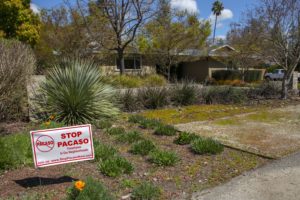
County boards of supervisors have jurisdiction over unincorporated areas, and in April 2023, the Sonoma County Board of Supervisors voted to change the county’s timeshare regulations. Timeshares are now only allowed in areas zoned for lodging and tourism. Short-term use of fractionally owned homes is defined as timeshare use and is limited to the county’s recreation and visitor-serving zoning districts.
The regulations make clear that properties with fractional use ownership are governed as timeshares, and that timeshares are limited to preserve housing for long-term residents.
StopPacasoNow activist Smith says her group is fine with the Sonoma County regulations.
“We have no objection to timeshares in, say, business districts, just like hotels are fine there,” Smith says.
‘A true real estate asset’
A Pacaso home in the Tahoe area—a location already overrun with tourists during the winter season—seems like a good example of an appropriate location. One of that home’s eight fractional owners gave some insights into what people like about Pacaso.
“It’s basically turnkey when you arrive—the experience of going to a lovely hotel, but it’s your own home,” says Deborah Redlin, whose primary residence is San Anselmo. Her Pacaso residence is in Olympic Valley, formerly known as Squaw Valley; she and her wife purchased the one-eighth ownership in 2020.
“It’s wonderful to be able to predict that you will have all your belongings there—each family has a set location in the garage to store all of our things,” Redlin says. “It’s all the benefits of ownership with minimal responsibility of ownership; if things break or something needs attention, we call the house manager.”
Redlin and her wife are professional working parents with a blended family of four children, so one of the advantages is not having the burden of taking care of a second home, she says. She is confident the value of the home will stay intact when the two decide to sell.
The family visits six or seven times a year, Redlin says. They visit both during the off and on seasons.
“My wife and I love going up on the off season in the fall when it’s more of a local feel and it’s not as crowded with tourists. We love to hike and see the fall colors and I love going to my favorite yarn store—I’m a knitter,” Redlin says. “We have our favorite restaurants we go to. We love being part of the community.”
Redlin believes that Pacaso is not a timeshare. A Pacaso spokeswoman elaborated.
“The most significant difference between Pacaso co-ownership and timeshares lies in what you own. With Pacaso, owners possess a true real estate asset,” Pacaso spokeswoman Chrissy Bruchey said in an email.
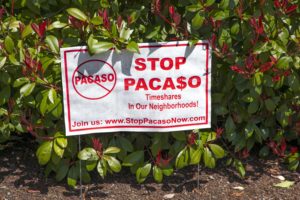 “And because it’s a real estate asset, its value will move with the market—which means that any equity realized is yours. In contrast, a timeshare typically grants you the right to use the property for a specific period, not ownership. Pacaso’s co-owners are deeply invested in their community and property, approaching it with a true owner’s mindset,” Bruchey said.
“And because it’s a real estate asset, its value will move with the market—which means that any equity realized is yours. In contrast, a timeshare typically grants you the right to use the property for a specific period, not ownership. Pacaso’s co-owners are deeply invested in their community and property, approaching it with a true owner’s mindset,” Bruchey said.
Smith doesn’t see it that way.
“They come and they go, sometimes Super Bowl, New Year’s Eve, lots of cars in the driveway, but there is no camaraderie like there is with the rest of the owners in the cul-de-sac,” the StopPacasoNow member says.
Overall, Smith says she feels the sun is setting on Pacaso. When the company launched in 2020, Pacaso announced it had raised $17 million in Series A funding; the company was helmed by real estate tech luminaries like Zillow co-founder and former CEO Spencer Rascoff.
In October 2022, however, the company laid off nearly a third of its staff, about 100 employees, real estate news site Inman News and SFGate reported.
“The malaise affecting the tech sector is definitely having an effect,” Smith says. The St. Helena settlement is a good thing, she says, but it’s not over until it’s over.
“We won’t have won until the house across the street is no longer a Pacaso property,” Smith says.


